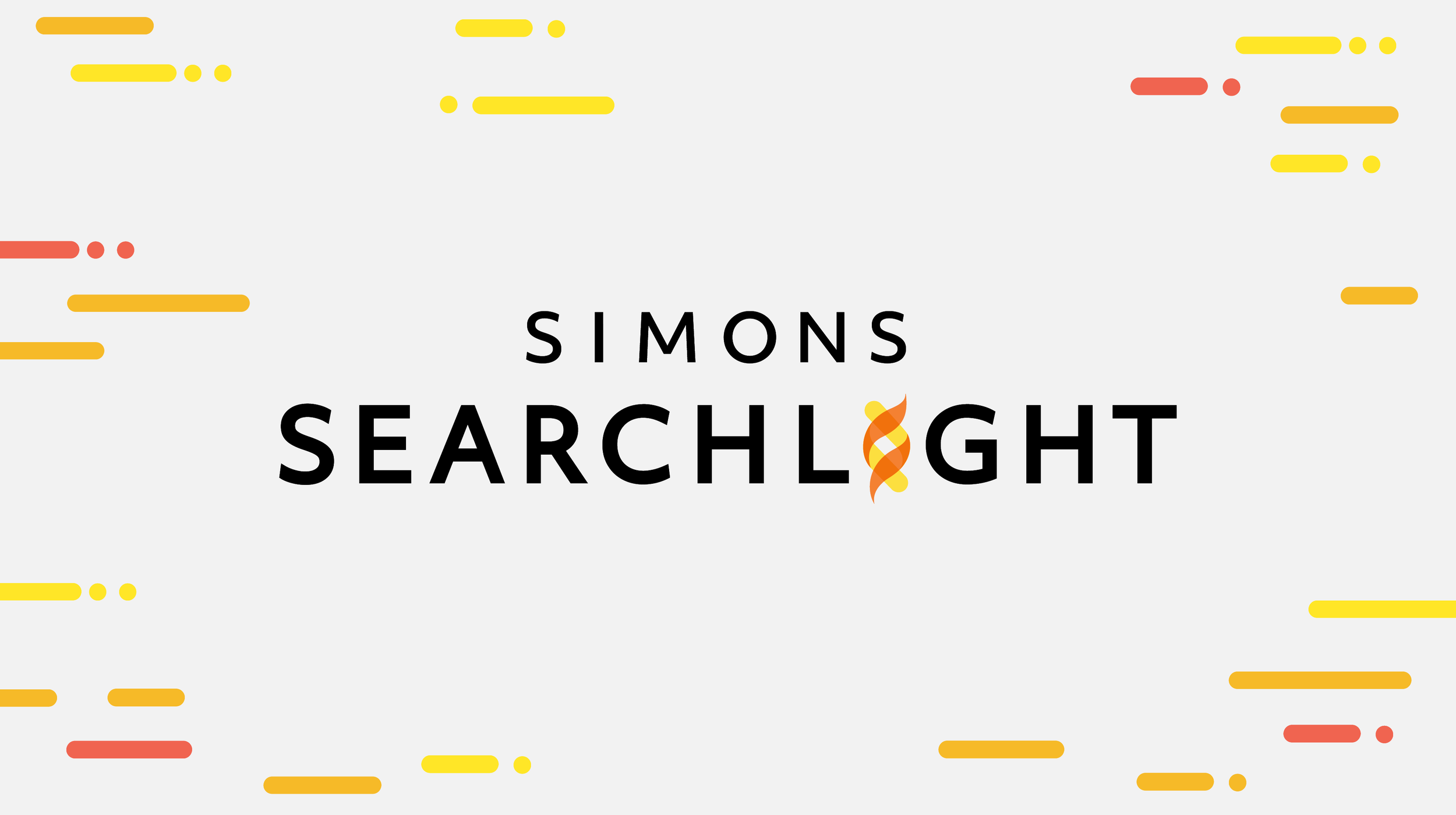
Patient Census
In the world of rare diseases, every patient counts—literally. Building a strong patient registry is critical not just for connecting families, but also for driving research forward. By gathering de-identified information about individuals with DAND, we can help clinicians and researchers better understand this condition, identify patterns, and push for more studies and treatments.
Why join the DAND Patient Census?
Advance Research
De-identified patient data helps researchers recognize trends, improve diagnostics, and explore potential treatments.
Stay Informed
Get updates on the latest research, clinical studies, and support programs.
Find Your Community
Connect with families who share your specific genetic variant, similar symptoms and experiences, and location for opportunities to connect in–person.
Help us get one step closer to treatments.
We are excited to be partnering with Simons Searchlight, an international research program focused on building a resource network of over 185 rare genetic neurodevelopmental disorders.
In order to create scientific breakthroughs for rare genetic neurodevelopmental disorders like DAND, families and scientists must come together, and Simons Searchlight’s mission is to shed light on these disorders by collecting high-quality, standardized natural history data and build strong partnerships between families, researchers, and patient advocacy communities.
By participating in Simons Searchlight’s registry, DAND families will be able to make meaningful contributions to better understand the DEAF1 gene.
Family Stories
Aiden
Aiden is a bright, happy, and vibrant 12-year-old who was diagnosed with a de novo mutation in the DEAF1 gene at the age of 2. His journey began typically until he experienced seizures around 9 months old, which led to global delays. After a hopeful period of relief, his seizures returned, and as he got older, he was diagnosed with Lennox-Gastaut Syndrome (LGS). Despite these challenges, Aiden's sweetness and charm light up our lives.
In his early years, Aiden communicated with a few words, signs, and an AAC device. Unfortunately, after Aiden started Kindergarten around age 6, he had a major regression and is now non-verbal. Aiden loves cuddling, playing little tricks, jumping on his trampoline, but splashing in the water is where he truly shines!
Back in 2014, there was very little information on DEAF1 mutations, so I started to reach out to researchers around the world to learn as much as possible and take the steps to identify other families. I created a family community to connect with others who understand our unique journey. Our greatest concern is Aiden's anxiety, which can trigger regression and seizures. To keep him happy and healthy, Aiden is homeschooled, providing the supportive environment he needs.
Join us in raising awareness for rare diseases like DAND (DEAF1 gene mutations) and in supporting other families on similar paths!
Isla
Isla was diagnosed with DAND at three years old. After initially receiving an autism diagnosis a year earlier, it felt surreal that all the areas of support she required stemmed from a random mutation in a gene her family had never heard of: DEAF1.
As a result of DAND, Isla is Autistic, non-speaking, has ADHD Combined, anxiety, a Global Developmental Delay, hypotonia, and an 80% chance of developing seizures. She is also brave, persistent, smart, loving, joyful, and one-of-a-kind. She loves the water, climbing, baking, and “playing” with her sisters by dragging them into the closet and giggling in the dark. She is deeply loved and has taught her family to be more patient, adaptive, and to celebrate progress on her timeline—not anyone else’s.
Isla’s story is not just about challenges…it’s about discovery—of her strength, her family’s love, and the incredible DAND community they’ve found along the way.
Resources
Did you know that the American Academy of Pediatrics recommends genetic testing with every diagnosis of Autism Spectrum Disorder? SPARK by Simons Searchlight, the largest autism research project in the U.S., provides free genetic testing with an autism diagnosis.
To find an autism screening in your area, contact your primary care physician or pediatrician.
Given DAND's ultra-rare status, it's not uncommon to encounter clinicians who are unfamiliar with the condition. To make these conversations easier for DAND families, we put together a DAND Info Sheet to share with care teams.



